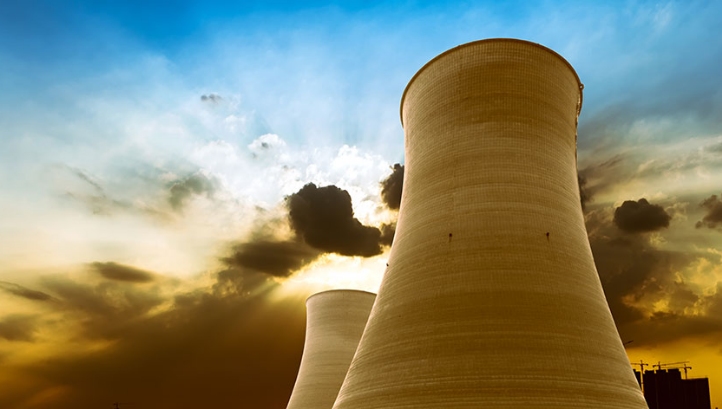Governments across North America, Europe and Asia are phasing out nuclear at a faster pace than they are increasing their respective renewable energy capacities, and therefore running the risk of reversing the low-carbon power transition.

Nuclear generation is estimated to account for 10% of the global energy mix
That is the key conclusion of a new report from the International Energy Agency (IEA), which concludes that nuclear generation capacity across all developed nations globally will decrease by 25% by 2025 and by two-thirds by 2040, without action from national governments and the business community.
The report states that nuclear and hydropower currently account for 75% of the low-carbon electricity generated globally, but that this proportion could fall “dramatically” due to what the IEA calls “nuclear fade” – namely plants reaching the end of their operational life and failing to be redeveloped, due to national energy policies or a lack of investment from central governments and private investors.
It warns that as this “nuclear fade” progresses, nations which have historically been reliant on nuclear for a large proportion of their clean energy, such as the US, Canada and Japan, are unlikely to be able to replicate the generation capacity or electricity security offered by their nuclear plants with renewables.
It claims that if nuclear plants were to be replaced with solar arrays as they came offline, solar deployment would have to happen five times as quickly as it has during the past 20 years.
As a result, the IEA states, “billions of tonnes of additional CO2 emissions” could be generated by the global energy sector by 2040, with developed nations likely to revert to fossil fuels to bridge energy demands. It notes that the use of nuclear power is estimated to have mitigated the emission of 60 gigatonnes of CO2e over the past 50 years.
In order to prevent this increase in emissions, the IEA is urging governments and businesses to collaboratively support the extension of existing nuclear plants’ lifespans. The report notes that this requires “substantial upfront capital investment” but would lower the overall cost of the low-carbon power transition, while also minimising disruption.
For this to happen, the body claims that Ministers must do more to end the “extended period of low wholesale electricity prices” for nuclear power, which has served to deter investors and reduce profit margins, leading to plants across the US, Europe and Asia closing before their operating licences expire.
“Without an important contribution from nuclear power, the global energy transition will be that much harder,” the IEA’s executive director Faith Birol said.
“Alongside renewables, energy efficiency and other innovative technologies, nuclear can make a significant contribution to achieving sustainable energy goals and enhancing energy security – but unless the barriers it faces are overcome, its role will soon be on a steep decline worldwide.”
Atom-smashing
Some countries have opted out of nuclear power in light of concerns about safety, environmental safeguarding and its decreasing economic competitiveness. The likes of Germany, South Korea and Italy have all pledged to phase out their existing power stations, while nations such as Ireland and Australia have never hosted any and have vowed never to build them in future.
Many other nations, however, still see a role for nuclear in their energy transitions. The European Commission’s draft climate plan for 2050, for example, includes nuclear power in its scenarios and member states are expected to adopt their preferred option by the end of the year.
Here in the UK, experts have warned that the Government’s nuclear strategy is entering “meltdown”, with Brexit concerns being compounded by Hitachi’s recent announcement that it is halting work on its plans for a new power plant in north Wales.
The Department for Business, Energy and Industrial Strategy (BEIS) is now exploring the regulated asset base model for financing nuclear development, which EDF is keen to see used for its next such project at Sizewell, and will be setting out its proposals for this new approach in an energy white paper that is due to be published in the summer. The model will build on BEIS’s £200m nuclear Sector Deal, which set out plans to decrease the cost of building new nuclear facilities by 30% by 2030 and to reduce decommissioning costs for taxpayers by 20% within the same timeframe.
Sarah George
